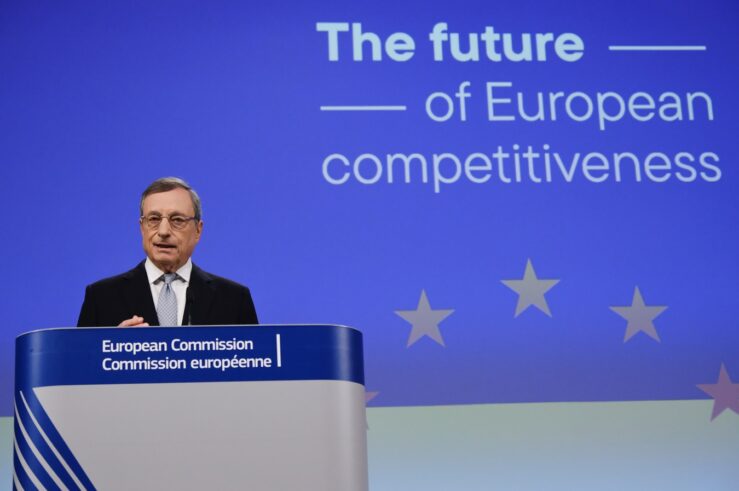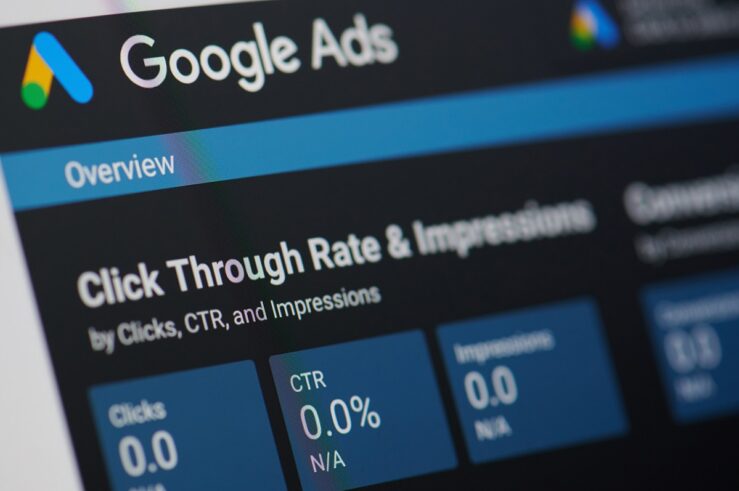Preemptive Digital-Platform Rules Are Not Good Competition Policy, But They Were Never Meant to Be
Inspired by the European Union’s Digital Markets Act (DMA), a growing number of jurisdictions around the globe either have adopted or are considering adopting frameworks of preemptive digital-competition rules (DCRs) that would more closely regulate the business models of such platforms as Google’s search engine and Amazon’s e-commerce business. The Turkish government may soon join ... Preemptive Digital-Platform Rules Are Not Good Competition Policy, But They Were Never Meant to Be
And the 2024 Economics Nobel Goes to…
The 2024 Nobel Memorial Prize in Economic Sciences (or simply THE Nobel Prize, as I call it) was awarded this morning to Daron Acemoglu, Simon Johnson, and James Robinson “for studies of how institutions are formed and affect prosperity.” I called last year’s prize to Claudia Goldin “a surprise to no one.” This year’s prize is ... And the 2024 Economics Nobel Goes to…
FTC Sues ‘Big 3’ Pharmaceutical Benefit Managers
My last post highlighted a July 2024 Federal Trade Commission (FTC) interim staff report that was critical of pharmaceutical benefit managers (PBMs)—so-called “middlemen” firms that specialize in negotiating with drugmakers for rebates on the list prices of drugs. I explained that the interim report’s analysis is at odds with economic research that delineates the substantial economic benefits ... FTC Sues ‘Big 3’ Pharmaceutical Benefit Managers
The FTC Takes On Pharmaceutical Benefit Managers
The Federal Trade Commission (FTC) announced Sept. 20 that it was suing the three largest pharmaceutical benefit managers (PBMs)—Caremark Rx, Express Scripts (ESI), and Optum—alleging competition and consumer-protection law violations. This commentary provides information on controversies surrounding the economic effects of PBMs that led up to the suit. A follow-up commentary will assess the lawsuit ... The FTC Takes On Pharmaceutical Benefit Managers
Prudence and Precedent Counsel Modest Remedies in Google Search Case
Later this fall, the U.S. District Court for the District of Columbia will hold hearings to determine the proper remedy in the Google search case. Among other options, the court could restrict Google’s ability to sign exclusive distribution contracts, force it to share data with competitors, or even break Google apart into two or more ... Prudence and Precedent Counsel Modest Remedies in Google Search Case
Deregulatory Reform, Not Antitrust, Is Key to A Vibrant US Economy
The Biden administration has emphasized “antitrust on steroids” and intrusive regulation as key elements of its economic policy. This has been counterproductive. Federal enforcers should return to prior bipartisan, less-interventionist consumer-oriented antitrust. On a parallel track, the federal government should focus on deregulatory reform to drive a competitively vibrant, faster-growing American economy. Biden Antitrust Has ... Deregulatory Reform, Not Antitrust, Is Key to A Vibrant US Economy
Age-Verification Mandates: Constitutional Concerns and Policy Pitfalls
In a recent post, my International Center for Law & Economics (ICLE) colleague Ben Sperry explored the First Amendment implications of Rep. John James’ (R-Mich.) proposal to mandate app stores either verify users’ ages and or obtain parental consent for users who are minors. While that analysis provided a solid foundation for understanding the constitutional ... Age-Verification Mandates: Constitutional Concerns and Policy Pitfalls
The Law & Economics of Online Age Verification and Parental Consent: App Store Edition
Roughly this time last year, I was writing an International Center for Law & Economics (ICLE) issue brief that considered online age-verification and parental-consent laws from a law & economics perspective. The resulting paper, “A Coasean Analysis of Online Age-Verification and Parental-Consent Regimes,” found that the major U.S. Supreme Court cases on age verification and ... The Law & Economics of Online Age Verification and Parental Consent: App Store Edition
Draghi Report Highlights Why to Be Wary of the ‘Brussels Effect’
Everyone in Europe, and across the international competition-law sphere, seems to have their own interpretation these days of former Italian Prime Minister and European Central Bank President Mario Draghi’s recent report “The Future of European Competitiveness” (a.k.a., the “Draghi report”). And, of course, those various interpretations, unsurprisingly, inevitably match the interpreter’s policy preferences. This is ... Draghi Report Highlights Why to Be Wary of the ‘Brussels Effect’
Protecting Innovation: Proposed Reforms Threaten US Pharmaceutical Leadership
Robust property rights and calibrated regulations have long been key ingredients of the U.S. life-sciences ecosystem, facilitating the development of new drugs that require substantial investments in research, development, and commercialization. Recent legislative proposals, however, threaten to undermine this system under the guise of addressing drug-pricing concerns. Of particular concern in the current legislative landscape ... Protecting Innovation: Proposed Reforms Threaten US Pharmaceutical Leadership
Lessons from Korea’s Roller-Coaster Ride Toward Platform (Non)Regulation
The Korea Fair Trade Commission (KFTC), the nation’s competition authority, announced Sept. 9 that it had abandoned plans for comprehensive platform regulation modeled after the European Union’s Digital Markets Act (DMA) or Section 19a of Germany’s Competition Act. The proposed Korean regulation would have involved an ex-ante designation process, alongside stringent prohibitions. The KFTC noted ... Lessons from Korea’s Roller-Coaster Ride Toward Platform (Non)Regulation
Justice Department’s Google Adtech Antitrust Suit Does Not Add Up
The trial of the U.S. Justice Department’s (DOJ) “adtech” antitrust lawsuit against Google kicked off Sept. 9 in U.S. District Court in Alexandria, Virginia. In a nutshell, the DOJ (joined by 17 states) argues that Google illegally monopolized key digital-advertising technologies through a variety of anticompetitive tactics. But the DOJ will find it difficult to ... Justice Department’s Google Adtech Antitrust Suit Does Not Add Up
















